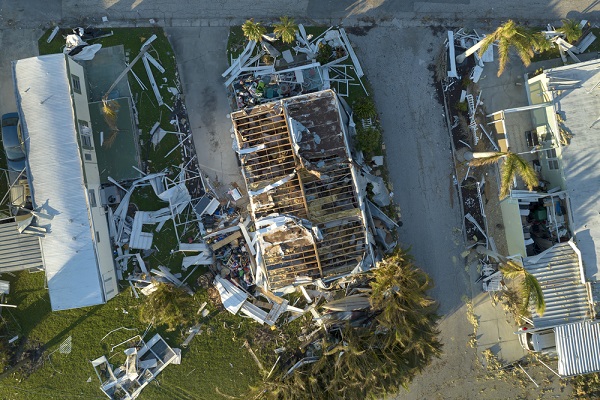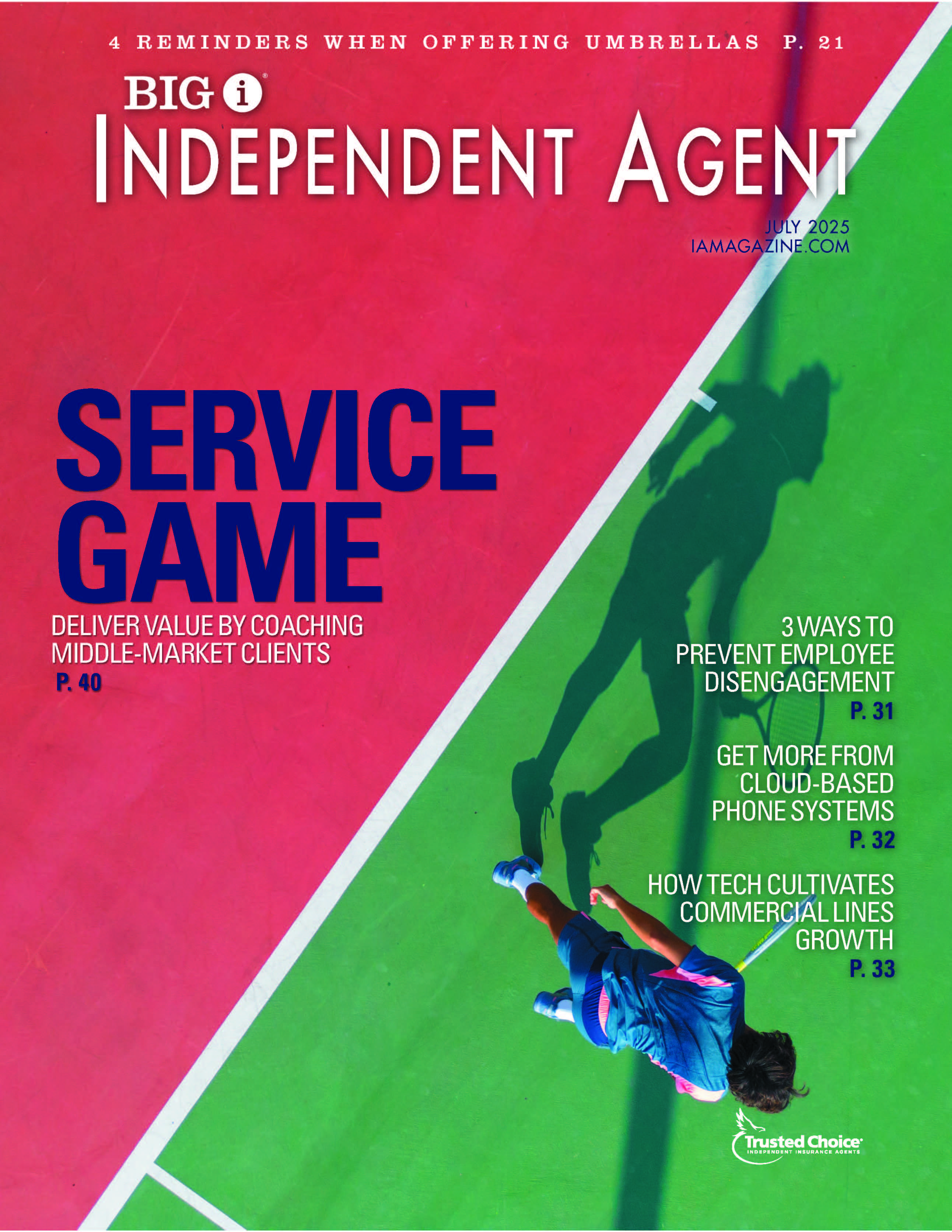5 Ways a CAT Event Can Impact Agency Valuations

By: Jeff Smith and Colleen Barbara
Over the last five years, the National Centers for Environmental Information (NCEI) has reported over 20 catastrophe events per year, with a total cost estimated at $616.1 billion. The increase in CAT events and higher loss ratios extends beyond the immediate damage. It is beginning to shake the foundation of the property & casualty insurance system and could significantly affect independent agencies in the long run, including agency valuations.
A single CAT event can result in many financial implications for an agency, on top of the long-term issues that will arise in a community that suffers from the event. Here are five financial implications of CAT losses for an agency:
1) Profit sharing and revenue impact. CAT losses directly impact an agency’s profit-sharing performance with its carriers. Profit sharing typically accounts for 6%-10% of an agency’s annual revenue and it is contingent upon maintaining favorable loss ratios.
While profit sharing is never guaranteed and should not be budgeted for, the absence of this revenue can still strain an agency’s financial resources and profitability. An agency can sustain itself through one year of missing out on profit sharing. However, if your agency is located in a CAT-prone area, the impact can be much greater over an extended period of time.
2) Carrier relationship and stability. CAT losses can jeopardize an agency’s relationship with its carriers in two ways. First, CAT losses may impact the stability of the carrier, particularly if it has substantial exposure to the affected region. The impact on the value of an agency depends on how much business has been placed with that carrier and the role it plays in an agency. This instability can cascade down to the agency, affecting its ability to offer competitive policies and maintain customer trust.
Second, repeated CAT losses over several years can lead carriers to reassess their relationship with the agency. If an agency consistently generates high loss ratios, carriers may reconsider their appointments, preferring to work with agencies that present lower risks.
Losing a direct appointment can be detrimental. It can reduce an agency’s ability to offer diverse and competitive insurance products to clients. Independent agency valuations heavily consider the stability and diversity of carrier relationships when evaluating an agency, and any perceived instability shows risk, which can lead to a lower valuation.
3) Utilization of excess & surplus lines brokers. In the wake of catastrophic events, standard carriers may become more cautious, tightening their underwriting criteria, and forcing an agency to place more business through E&S brokers. Commission splits are typically less favorable than they are with direct appointments, which can further diminish an agency’s revenue.
This shift will affect an agency’s overall market positioning and attractiveness to potential buyers on top of impacting its profitability.
4) Operational and reputational considerations. Managing a high volume of claims efficiently is crucial for maintaining an agency’s reputation. Any delays or perceived inadequacies in handling CAT claims can damage client trust and satisfaction. Reputational damage can be as detrimental as financial losses, which affects customer retention and new client acquisition.
When evaluating an agency, potential buyers consider both financial performance and market reputation. A tarnished reputation due to poor claims management during CAT events lowers an agency’s valuation.
5) Local economic effects. The economic impact of a CAT event on a community can have both short- and long-term effects on an insurance agency. There is typically a short-term economic boost of sorts for the impacted community as they begin the recovery and rebuilding process. Local businesses can quickly get stimulated and create jobs due to the event. But this short-term silver lining may be less optimistic if the region is prone to frequent CAT events. If property values decline, businesses may relocate and the population may decrease.
4 Strategies to Mitigate the Impact of CAT Losses
Here are four ways an agency can mitigate the impact of CAT losses on its valuation:
1) Diversification. Reduce the reliance on a specific geographic region by diversifying your portfolio and mitigating the impact of localized CAT events. Achieve this by expanding into different regions or different lines of business to stabilize the revenue streams.
2) Strengthening carrier relationships. Work with carriers to develop thorough risk management and loss prevention programs. By doing this, an agency can demonstrate a proactive approach to mitigating risk that can build a stronger relationship and secure more favorable appointments.
3) Investing in technology. Enhance your operational efficiency and client satisfaction by utilizing technology for efficient claims handling even if an agency’s location is affected by CAT damage.
4) Financial planning and reserves. Building financial reserves and adopting conservative financial practices can provide a buffer during periods of high losses and economic uncertainty caused by CAT damage.
CAT events can cause significant challenges for insurance agencies, affecting their financial stability, carrier relationships and overall valuation. For an agency with a high concentration of business in a vulnerable region, the impact of CAT losses can be profound and far-reaching. By understanding these risks and adopting strategic measures, an agency can better navigate the complexities of these events, preserving its value and ensuring its long-term success.
Jeff Smith, JD, CIC, CAE, is CEO of IA Valuations and the Ohio Insurance Agents Association. Colleen Barbara is marketing coordinator of IA Valuations and OIA.
Published with permission. Copyright ©2024 by IA Valuations and Ohio Insurance Agents Association (OIA). All rights reserved. No portion of this document may be reproduced in any manner without the prior written consent of IA Valuations or OIA. In addition, this document may not be posted as a link on any public or private website without the prior written consent of IA Valuations or OIA.










